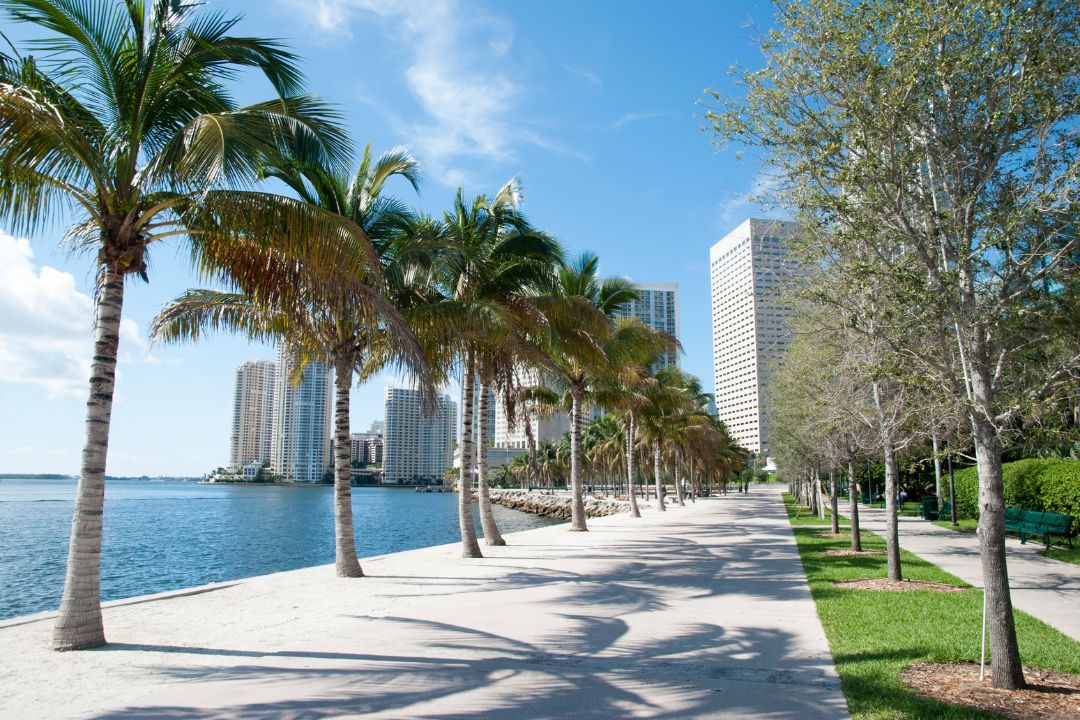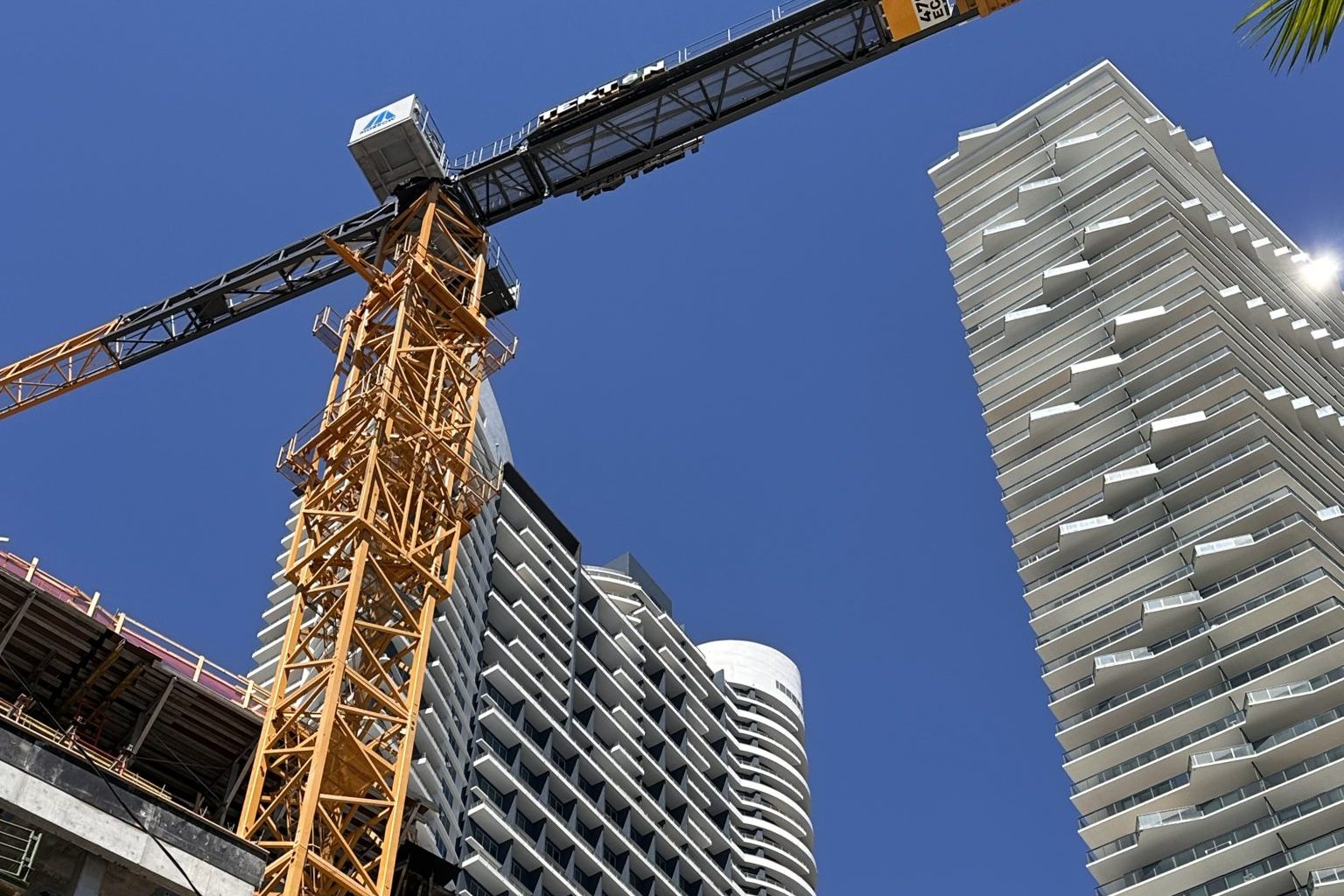Can foreigners buy property in the USA? The simple answer is yes, foreigners can indeed purchase real estate in the United States.
However, navigating the process involves understanding several important intricacies.
For instance, with the recent banking turmoil, banks are tightening up their credit guidelines, some refusing to lend to foreigners altogether.
Besides difficulties in finding financing, several states have laws restricting foreigners’ property ownership rights.
However, those hurdles are not insurmountable.
From financing challenges to legal restrictions, this guide will walk you through the nuances of buying property in the USA as a foreigner.
So, can foreigners buy property in the USA?
Yes, in general, foreigners can buy property in the USA. However, there may be state regulations that place restrictions on citizens from certain countries. Additionally, the process of buying a house in the USA for foreigners and getting a mortgage loan if necessary is more complicated compared to U.S. citizens.
Who can own property in the United States today?
When it comes to non-U.S. citizens, the following groups may own U.S. properties: (1) permanent residents with green cards; (2) temporary residents with visas; and (3) foreign nationals. Foreign nationals face the most restrictions; for example, foreign nationals can only use the property as their second home or investment property.
Foreigners from all over the globe purchase property in the United States. The top foreign buyers, according to the National Association of Realtors’s 2023 Profile of International Transactions in U.S. Residential Real Estate, were:
- China (13% of foreign buyers, $13.6 billion)
- Mexico (11% of foreign buyers, $4.2 billion)
- Canada (10% of foreign buyers, $6.6 billion)
- India (7% of foreign buyers, $3.4 billion)
- Colombia (3% of foreign buyers, $0.9 billion)
For the 15th consecutive year, Florida remained the top destination for foreign buyers, accounting for 23% of all international purchases:
- Florida (23%)
- California (12%)
- Texas (12%)
- North Carolina (4%)
- Arizona (4%)
Why can foreigners buy property in the USA?
According to the National Association of Realtors, the dollar volume of foreign buyer residential purchases from April 2022 to March 2023 was $53.3 billion. This financial contribution is a vital boost to the U.S. economy. International clients are an important market niche served by U.S. realtors, lenders, and mortgage brokers.
Therefore, in response to the question, “Why are foreigners allowed to buy property in the USA?”, there are several valid reasons.
Moreover, the benefit is mutual. Foreigners have a lot to gain by investing in U.S. real estate. For example, Florida remains the most popular destination, as the Sunshine State offers low taxes, warm weather, and quality services.
How can foreigners buy property in the USA?
There are two main methods to buy a house in the USA for a foreigner. The first is an all-cash transaction. The other method is a mortgage from a lender that specializes in foreign national loans. While cash may be king, foreigners have more financing options than they may think.
Due to the competitive real estate market with limited housing availability, differing currency exchange rates, and other factors, foreign buyers often opt for all-cash purchases. Indeed, the percentage of foreign buyers who pay in cash is significantly higher, with 42% making all-cash purchases compared to 26% of all buyers of existing homes in 2023.
However, cash isn’t the only option. In the next section, we discuss the mortgage options available to foreign investors looking to purchase U.S. real estate.
Mortgage options to buy a house in the USA as a foreigner
When getting a mortgage for buying a house as a non-resident, there are three paths the foreign borrower can take: full documentation of their income, alternative less stringent documentation of their income, or no documentation of income at all.
Full documentation (traditional mortgage from a bank)
This path is perfect for foreigners with “squeaky clean” requests, i.e., good credit history, a low debt-to-income ratio (DTI), and the ability to fully document their income, and who are looking to purchase a property that does not have any valuation or other issues.
Under this route, borrowers report their documented income and allow the lenders to compute their DTI. To qualify for full documentation, the borrowers must provide:
- Foreign equivalent of U.S. tax returns, W2s and paystubs
- Bank statements
- Foreign and/or U.S. credit report
Full documentation carries the least risk for the lenders; thus, foreign nationals who take this path typically enjoy the best rates and terms.
Alternative documentation (non-traditional mortgage from an alternative lender)
There are also alternative mortgage programs for non-U.S. citizens, who for one reason or another, cannot comply with the traditional requirements needed for the full documentation programs.
These include self-employed individuals who write off a lot of expenses and show low income in their tax returns. Instead of tax returns, the borrower has the option of providing an accountant or CPA letter (if self-employed) or a letter from their employer (if employed). Learn more about these innovative self-employed mortgage mortgage options.
For high-net-worth foreign nationals, they can qualify for a loan under the asset depletion program, where the lender computes the borrower’s income stream based on the amount of assets declared. This program and other types of high-net-worth mortgage solutions understand the complex financial situations of foreign nationals who have unstable, fluctuating income streams and who are asset-rich but cash-poor.
If the property in question is to be used as a rental investment property, foreign nationals can take advantage of the debt service coverage ratio DSCR loan program. Under this program, the focus is on the property’s cash flow and income rather than the borrower’s personal income.
Sometimes, the issue is not the borrower, but the property itself. For example, for foreigners looking to purchase a non-warrantable condo, while a bank may deny the loan, alternative lenders have special programs for these special types of condos, whether the issue is construction defect litigation or low reserves in the condominium association budget.
No matter the situation, alternative programs are available to enable foreigners to purchase real estate in this country.
No documentation (bridge loan from a hard money lender)
Bridge loans are short-term financial solutions designed for borrowers who do not qualify for a traditional mortgage or who need funds faster than other lenders can provide. They serve as “bridges” that provide immediate cash flow until the borrower executes upon the exit strategy, e.g., securing long-term financing or selling the property.
The primary factor in a bridge loan is the value and condition of the property being purchased. No documentation of income is required at all, making bridge loans a very attractive option for foreigners.
Costs for a foreigner buying property in the US
Generally speaking, the closing costs associated with buying a house in the USA for non-residents are the same as for U.S. citizens. However, foreigners should research the tax obligations and consult with a tax professional to discuss property taxes and potential capital gains taxes upon selling the property. For example, Foreign Investment in Real Property Tax Act (FIRPTA) requirements may apply.
When taking out a mortgage to purchase the property, there are special considerations to keep in mind:
Remote closings
To save on time and travel expenses, foreign nationals can enjoy the benefit of digital, remote closings. All the loan processes are completed remotely, eliminating the need to travel to the U.S. in most circumstances.
Corporate services
Depending on the lender, the foreign national borrower may be required to set up a limited liability company (LLC) or another U.S.-based entity. The entity holds title to the property on behalf of the foreign national. While there are costs associated with setting up and maintaining the entity, this option is perfect for buyers who want to keep their privacy, have limited liability, and enjoy tax advantages.
US bank accounts
Lenders also typically require foreign-national borrowers to have a U.S. bank account where their monthly mortgage payments will come from. In most cases, opening the account can be done online without the need to travel.
Therefore, the entrepreneur mortgage program is designed to attract high-income or high-net-worth individuals with spheres of influence who are looking for high loan amounts and fast approval and closing times.
Examining the rules for foreigners buying property in the USA
Several U.S. states impose property ownership restrictions on foreigners from certain countries to address national security and economic concerns. Here, we summarize the restrictions and rules for foreigners buying property in the USA.
Which states have enacted laws regulating foreign ownership of U.S. real estate?
Alabama, Arkansas, Florida, Idaho, Illinois, Iowa, Kansas, Kentucky, Louisiana, Maine, Minnesota, Mississippi, Missouri, Montana, Nebraska, North Dakota, Ohio, Oklahoma, Pennsylvania, South Carolina, South Dakota, Tennessee, Texas, Utah, Virginia and Wisconsin have enacted legislation regulating foreign ownership of real property within their borders.
However, the list of states is subject to change. State lawmakers in many other states have introduced similar bills. Also, there have been lawsuits challenging the constitutionality of these laws.
What do these laws require or prohibit?
The state laws have different approaches. While some states only have information-gathering laws requiring disclosure of foreign ownership of U.S. real estate, other states are more restrictive:
- Some laws prohibit certain transactions and may require divestiture of the property.
- Other restrictions only apply to agricultural properties.
- Other laws focus on properties located near military installations or critical infrastructure.
- Other laws prohibit ownership of any type of real property within the state.
Which foreigners are subject to these laws?
Again, the laws vary from state to state, but most of the regulations prohibit purchases by individuals or entities from countries identified on lists maintained under federal law such as:
- Sanctions lists maintained by the Office of Foreign Assets Control (OFAC) in the Department of the Treasury
- The International Traffic in Arms Regulations
- The foreign adversaries list generated under Executive Order 13873 and its implementing regulations
- Countries of particular concern designated by the U.S. Secretary of State
Other states define their own custom lists, such as Florida, whose law applies to individuals or entities from the People’s Republic of China, the Russian Federation, the Islamic Republic of Iran, the Democratic People’s Republic of Korea, the Republic of Cuba, the Venezuelan regime of Nicolás Maduro, or the Syrian Arab Republic.
In sum, if you are considering buying a house in the US as a foreigner, it is important to consult with an attorney or otherwise research the state laws or restrictions for the latest updates.
How DAK Mortgage can help a foreigner buy a house in the USA
One of the main reasons why foreigners end up deciding not to purchase a U.S. property is because they were unable to obtain financing and qualify for a mortgage.
It is indeed more difficult for foreign real estate investors to secure mortgage financing.
With all the recent bank turmoil in the United States, the majority of banks have stopped lending altogether to foreign nationals.
However, DAK Mortgage has connections with the banks that continue to lend to foreign nationals who satisfy traditional lending criteria. Besides traditional bank programs, DAK Mortgage also has access to several alternative mortgage programs that forego traditional requirements such as income documentation.
In other words, if you are a non-citizen buying a property in the USA and you are looking to explore your options, whether you are interested in a super jumbo mortgage or a bridge loan, we can help you find the needle in the haystack.
Our recent successes
We’ve helped foreigners purchase properties in all kinds of situations including:
- DSCR loan for U.K. foreign national to purchase a 10-acre property in New York
- $2M loan for green card holder from Argentina to purchase new construction condominium in Florida
- DSCR loan for Jamaican foreign national to purchase a luxury condominium rental property in Florida
- Hard money bridge loans for foreigners from Germany, Brazil, Mexico, and Spain to purchase U.S. real estate, each loan closing within a week
We have a proven track record of navigating the nuances of securing a mortgage for foreigners in the USA.
Key takeaways: can a foreigner buy a house in the USA?
Buying a property in the USA as a foreigner is certainly possible, and many do, drawn by various benefits including tax benefits and potential economic returns.
The process, however, involves several intricacies:
- Purchasing Methods: Foreign buyers often prefer all-cash purchases due to the competitive market and the complexity of obtaining financing. Nonetheless, traditional and alternative mortgages are available through lenders that specialize in loans to foreign nationals.
- Legal Considerations: It’s crucial for foreign buyers to understand the legal complications, such as the need to establish a U.S.-based entity or the implications of state-specific laws that may restrict property ownership.
For those considering this venture, thorough due diligence and consultation with real estate agents and lending experts is necessary to navigate the complex landscape of U.S. real estate investment successfully.
Whether you’re interested in purchasing an investment property or a second home, understanding these key points can help you make a more informed decision and secure the perfect property.
FAQs
Can a non-US citizen get a mortgage loan?
Yes, non-US citizens can obtain mortgages in the United States. This includes permanent residents with green cards, temporary residents with specific visas, and foreign nationals. Lenders offer different types of mortgages that cater to the needs of international buyers, including loans that require full, alternative, or no documentation of income.
Can immigrants buy a house in the USA?
Absolutely. Immigrants can buy houses in the USA just like any other buyer. The process might require additional steps for securing financing, but there are no federal laws that specifically prohibit immigrants from owning property (although there may be state laws restricting ownership by individuals from certain countries).
Can foreigners buy land in the USA?
Yes, foreigners are allowed to buy land in the USA. There are no federal restrictions on foreign ownership of land, but state laws can vary, especially regarding the country of origin of the borrower and the intended use of the land. It’s important for potential buyers to check local restrictions.
Can a tourist buy a house in the USA?
Tourists can buy houses in the USA. For purposes of applying for a mortgage, the lack of residency or citizenship alone is not an impediment. They might face more challenges in financing the purchase, as they would likely need to make a larger down payment and meet stricter lending criteria.
Can a UK citizen buy a house in the USA?
U.K. citizens can buy U.S. properties and are among the largest groups of international buyers. Like any foreign buyer, they need to consider whether they will pay all-cash or obtain a mortgage and understand any legal implications, such as visa requirements if they plan to reside in the property.
Can a Canadian citizen buy a house in the USA?
Yes, Canadians are among the top groups of foreigners purchasing US real estate, particularly in Florida, Arizona, California and other warm-weather states. And it is possible to get a US mortgage for a Canadian citizen with a fixed-rate, which is a welcome feature as Canadian mortgages are primarily adjustable-rate.









